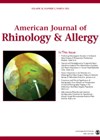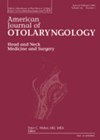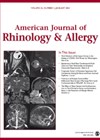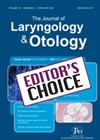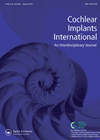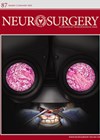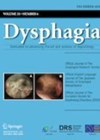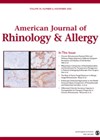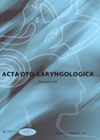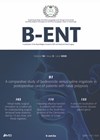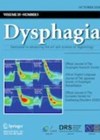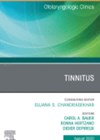
Journal Reviews
Can we predict how much benefit patients will get from ESS with a novel monoclonal antibody
Mepolizumab (Nucala) is a humanised IgG1 monoclonal antibody that acts as an IL-5 antagonist. It has been shown to be highly effective in treating severe asthma. It is hypothesised that it will be effective for patients with recalcitrant CRSwNP. This...
Combination PPI and intralesional steroid treatment for recurrent laryngeal granuloma
The existence of a wide range of treatments for recurrent laryngeal granulomas (repeat surgery, high-dose proton pump inhibitor (PPIs), surgery with botulinum toxin injection, botulinum toxin injection alone, etc) is a testament to the refractory nature of this condition, with...
Simple preoperative tests predicting outcomes for ESS patients?
We are all familiar with patients suffering extensive nasal polyps who relapse all to soon after careful and thorough endoscopic sinus surgery (ESS). This paper looks to answer whether we can predict which patients will do well, and which less...
Modifying two-week wait protocol for suspected head and neck cancer patients during COVID-19
As healthcare workers, we are committed to ensuring that our patients continue to receive the optimum care that we are set up to deliver. However, the last year has shown that we need to be mindful of balancing this with...
Effect of stimulation levels on speech recognition and auditory threshold performance
When programming a Cochlear® device, two measurements are normally assessed. T levels relate to the quietest sound the CI user can hear i.e. thresholds, and C levels are comfortable levels which are tolerable for the CI user. If these levels...
Predictors of diabetes insipidus post-hypophysectomy
Transient diabetes insipidus (DI) after pituitary surgery is not uncommon and its diagnosis fairly obvious. Permanent DI is rare and often depends on the neurosurgeon’s experience. This retrospective study describes a large series of patients with majority undergoing endoscopic transsphenoidal...
Cuff up or cuff down; to occlude or not to occlude? What effect does tracheostomy tube modification have on swallowing outcomes?
Dysphagia is commonly seen in patients with tracheostomy. The current global pandemic has increased interest in the impact of a tracheostomy on swallowing outcomes. This systematic review is therefore a timely addition to the literature and a useful read for...
Can we avoid FESS in patients with true isolated odontogenic sinusitis?
This is a useful study looking at how best to manage patients with odontogenic sinusitis and if FESS can be safely avoided. The authors treated patients by removing the odontogenic cause of the rhinosinusitis by extracting the offending tooth and...
Earlier intervention to correct anosmia?
This is an interesting study aimed to determine the timing for successful surgical intervention in improving the sense of smell in patients with chronic rhinosinusitis with nasal polyps (CRSwNP). A total of 86 CRSwNP patients with loss of smell and...
PET-CT for malignant nasopharyngeal lesions
This retrospective Turkish review of 92 patients aimed to determine the ability of fluorine 18-fluorodeoxyglucose (FDG) maximum standardised uptake value (SUVmax) on positron emission tomography/computerised tomography (PET/CT) to differentiate benign processes and malignant nasopharyngeal lesions. The authors retrospectively reviewed the...
Predicting swallowing outcomes post radiotherapy for head and neck cancer
A videofluroscopic swallow study (VFSS), also known as modified barium swallow (MBS) offers a dynamic view of swallow biomechanics and associated swallowing physiology. The authors of this paper investigated whether quantitative timing and displacement measures of key structures involved in...
Pharmacologic treatment options for tinnitus
This article summarises potential medications that could be used to treat tinnitus and the evidence behind their use. Effective medications to eliminate tinnitus remain elusive but treatment could be divided into two broad categories: treatment to reduce perception of tinnitus...

